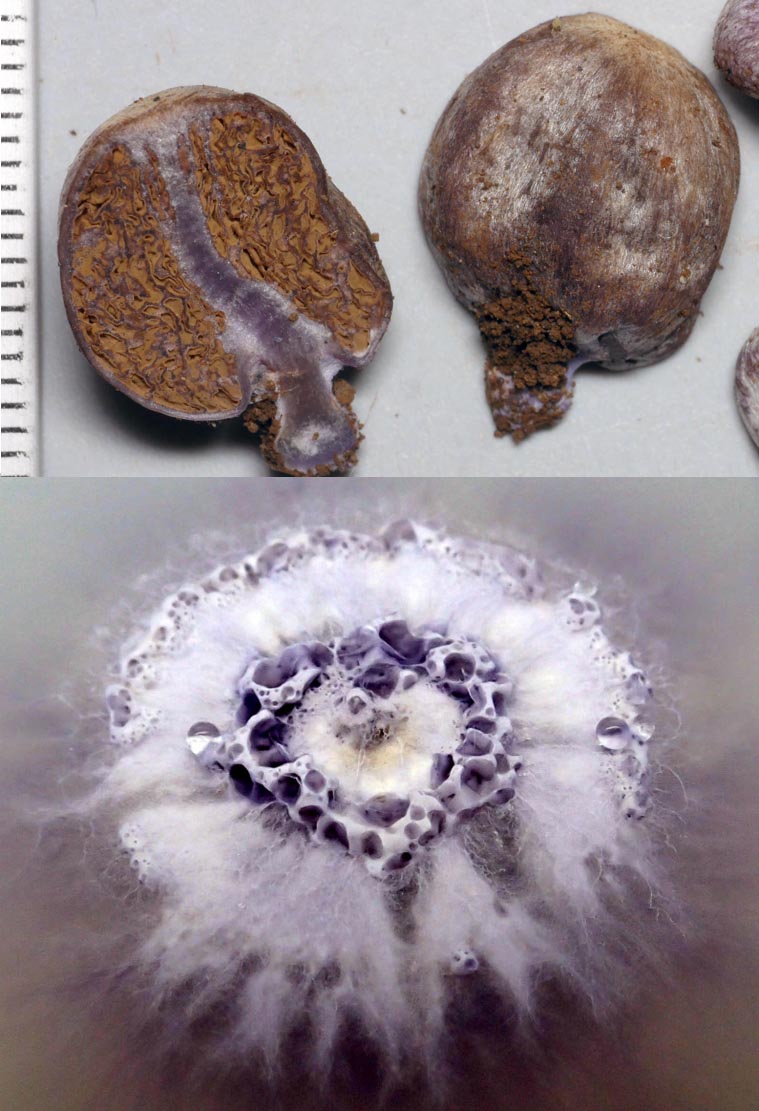
Cortinarius aff. campbelliae. Sectioned fruit body and culture growing on 1/5 dilution of PDA supplemented with B group vitamins. Scale is in millimetres. (David Catcheside)
The reproductive success of fungi is heavily influenced by climate. For those fungi that produce emergent mushroom-like fruit bodies, periods of drought or heat can severely curtail the spread of these fungi within an ecosystem due to rapid drying of the developing hymenium thus limiting spore production and dispersal. Some fungi have evolved the adaptation of producing truffle-like fruit bodies (below ground or emergent, with an enclosed spore mass) – likely in response to past extreme climatic events. This project aims to determine the molecular pathway(s) that led to the evolution of truffle-like fungal fruit bodies within globally diverse lineages of mushroom-like basidiomycete ectomycorrhizal (ECM) and saprotrophic fungi as a response to previous events of climatic extremes and change. These data will enable new avenues of research into the ecology of truffle-like fungi and will eventually further work into understanding the microbiome of forest trees.
Proposer’s Name: David Catcheside, Flinders University (Australia)